- Home
- Jodi Picoult
Small Great Things Page 3
Small Great Things Read online
Page 3
As if he had nothing to do with it.
My mother stopped sobbing, pursed her lips, and spit.
--
BRIT AND ME, we've been waiting forever for this moment.
I'm driving with one hand on the steering wheel of the pickup and the other one on the bench seat between us; she clenches it every time a contraction hits her. I can tell it hurts like a bitch, but Brit just narrows her eyes and sets her jaw. It's not a surprise--I mean, I've seen her knock out the teeth of a beaner who dented her car at the Stop & Shop with a runaway cart--but I don't think she's ever been quite so beautiful to me as she is right now, strong and silent.
I steal glimpses at her profile when we idle at a red light. We have been married for two years, but I still can't believe that Brit is mine. She's the prettiest girl I've ever seen, for one, and in the Movement, she's about as close to royalty as you can get. Her dark hair snakes in a curly rope down her back; her cheeks are flushed. She's puffing, little breaths, like she's running a marathon. Suddenly she turns, her eyes bright and blue, like the middle of a flame. "No one said it would be this hard," she pants.
I squeeze her hand, which is something, because she's already squeezing mine to the point of pain. "This warrior," I tell her, "is going to be just as strong as its mom." For years, I was taught that God needs soldiers. That we are the angels of this race war, and without us, the world would become Sodom and Gomorrah all over again. Francis--Brit's legendary dad--would stand up and preach to all the fresh cuts the need to increase our numbers, so that we could fight back. But now that Brit and I are here, in this moment, about to bring a baby into the world, I'm filled with equal parts triumph and terror. Because as hard as I've tried, this place is still a cesspool. Right now, my baby is perfect. But from the moment it arrives, it's bound to be tainted.
"Turk!" Brittany cries.
Wildly, I take a left-hand turn, having nearly missed the hospital entrance. "What do you think of Thor?" I ask, turning the conversation to baby names, desperate to distract Brit from the pain. One of the guys I know from Twitter just had a kid and named him Loki. Some of the older crews were big into Norse mythology, and even though they've broken up into smaller cells by now, old habits die hard.
"Or Batman or Green Lantern?" Brittany snaps. "I'm not naming my kid after a comic book character." She winces through another contraction. "And what if it's a girl?"
"Wonder Woman," I suggest. "After her mother."
--
AFTER MY BROTHER died, everything fell apart. It was like that trial had ripped off the outside layer of skin, and what was left of my family was just a lot of blood and guts with nothing to hold it together anymore. My father split and went to live in a condo where everything was green--the walls, the carpet, the toilet, the stove--and every time I visited, I couldn't help but feel queasy. My mother started drinking--a glass of wine with lunch and then the whole bottle. She lost her job as a paraprofessional at the elementary school when she passed out on the playground and her charge--a kid with Down syndrome--fell off the monkey bars and broke her wrist. A week later we put everything we owned into a U-Haul and moved in with my grandfather.
Gramps was a vet who had never stopped fighting a war. I didn't know him all that well, because he'd never liked my dad, but now that that obstacle was out of the way, he took it upon himself to raise me the way he thought I should have been raised all along. My parents, he said, had been too soft on me, and I was a sissy. He was going to toughen me up. He'd wake me up at dawn on weekends and drag me into the woods for what he called Basic Training. I learned how to tell poisonous berries apart from the ones you could eat. I was able to identify scat so I could track animals. I could tell time by the position of the sun. It was sort of like Boy Scouts, except that my grandfather's lessons were punctuated by stories of the gooks he fought in Vietnam, of jungles that would swallow you if you let them, of the smell of a man being burned alive.
One weekend he decided to take me camping. The fact that it was only six degrees outside and that snow was predicted did not matter. We drove to the edge of the Northeast Kingdom, close to the Canadian border. I went to the bathroom, and when I came back out my grandfather was gone.
His truck, which had been parked at a pump, was missing. The only hints that he'd been there at all were the impressions of the tire tracks in the snow. He'd left with my backpack, my sleeping bag, and the tent. I went into the gas station again and asked the attendant if she knew what had happened to the guy in the blue truck, but she just shook her head. "Comment?" she said, pretending like she didn't even speak English even though she was still technically in Vermont.
I had my coat, but no hat or mittens--they were still in the truck. I counted sixty-seven cents in my pocket. I waited until another customer pulled into the gas station and then, when the cashier was occupied, I shoplifted a pair of gloves and a hunter-orange hat and a bottle of soda.
It took me five hours to track my grandfather--a combination of racking my brain to remember what he'd been yammering on about in terms of directions that morning when I was half asleep, and walking down the highway looking for clues--like the wrapper from the tobacco he liked to chew, and one of my mittens. By the time I found his truck pulled off on the side of the road and could follow his footprints through the snow into the woods, I wasn't shivering anymore. I was a furnace. Anger, it turns out, is a renewable source of fuel.
He was bent over a campfire when I stepped into the clearing. Without saying a word, I walked up and shoved him so that he nearly fell into the burning embers. "You son of a bitch," I yelled. "You can't just walk away from me."
"Why not? If I don't make a man out of you, who the hell will?" he said.
Even though he was twice as big as me, I grabbed him by the collar of his jacket and hauled him upright. I drew back my fist and tried to punch him, but he grabbed my hand before the blow could land.
"You want to fight?" my grandfather said, backing away and circling me.
My father had taught me how to punch someone. Thumb on the outside of your fist, and twist the wrist at the very end of the throw. It was all talk, though; I'd never hit someone in my life.
Now, I drew back my fist and shot it forward like an arrow, only to have my grandfather twist my arm behind my back. His breath was hot in my ear. "Did your pansy-ass father teach you that?" I struggled, but he had me pinned. "You want to know how to fight? Or do you want to know how to win?"
I gritted my teeth. "I...want...to win," I ground out.
Gradually he relaxed his grip, keeping one hand clamped on my left shoulder.
"You're small, so you come in real low. Then you'll be blinding me with your body, and I'm expecting you to bring the punch up. If I duck, my fist will hit you in the face, which means I'll stay upright, and leave myself wide open. The last thing I'll be expecting is for you to come up over the shoulder like this."
He raised his right fist, looping it up and over in a dizzy arc that stopped a breath before it kissed my cheekbone. Then he let go of me and took a step back. "Go on."
I just stared at him.
This is what it feels like to beat someone up: like a rubber band stretched so tight it aches, and starts to shake. And then when you throw that punch, when you let go of the elastic, the snap is electric. You're on fire, and you didn't even realize you were combustible.
Blood sprayed from my grandfather's nose onto the snow; it coated his smile. "That's my boy," he said.
--
EVERY TIME BRIT gets up during labor, the contractions get so bad that the nurse--a redhead named Lucille--tells her to lie back down. But when she does, the contractions stop, and so Lucille tells her to take a walk. It's a vicious circle, and it's been seven hours already, and I'm starting to wonder if my kid is going to be a teenager before he decides to come into this world.
Not that I'm saying any of that to Brit.
I've held her steady while an anesthesiologist put in an epidural--something that Brit b
egged for, which totally surprised me, since we had planned to do a natural birth without drugs. Anglos like us stay away from them; the vast majority of people in the Movement look down on addicts. I whispered to her as she bent over the bed, the doctor feeling along her spine, asking if this was a good idea. When you have the baby, Brit said, you get to decide.
And I have to admit, whatever they've got pumping through her veins has really helped. She's tethered to the bed, but she's not writhing anymore. She told me that she can't feel anything below her belly button. That if she wasn't married to me she'd propose to the anesthesiologist.
Lucille comes in and checks the printout from the machine that's hooked up to Brit, which measures the baby's heartbeat. "You're doing great," she says, although I bet she says that to everyone. I tune out as she talks to Brit--not because I don't care, but because there's just some mechanical stuff you don't want to think about if you ever want to see your wife as sexy again--and then I hear Lucille tell Brit that it's time to push.
Brit's eyes lock on mine. "Babe?" she says, but the next word jams up in her throat, and she can't say what she wants to.
I realize that she is scared. This fearless woman is actually afraid of what comes next. I thread my fingers through hers. "I'm right here," I tell her, although I'm just as terrified.
What if this changes everything between me and Brit?
What if this baby shows up and I don't feel anything at all for it?
What if I turn out to be a lousy role model? A lousy father?
"The next time you feel a contraction," Lucille says, "I want you to bear down." She looks up at me. "Dad, get behind her, and when she has the contraction, you help her sit up so she can push."
I'm grateful for the direction. This I can do. As Brit's face reddens, as her body arcs like a bow, I cup her shoulders in my hands. She makes a low, guttural noise, like something in its last throes of life. "Deep breath in," Lucille coaches. "You're at the top of the contraction...now bring your chin to your chest for me and push right down into your bottom..."
Then, with a gasp, Brit goes limp, shrugging away from me as if she can't stand having my hands on her. "Get off me," she says.
Lucille beckons me closer. "She doesn't mean it."
"Like hell I don't," Brit spits out, another contraction rising.
Lucille arches her eyebrows at me. "Stand up here," she suggests. "I'm going to hold Brit's left leg and you're going to hold the right..."
It's a marathon, not a sprint. An hour later, Brit's hair is matted to her forehead; her braid is tangled. Her fingernails have cut little moons in the back of my hand, and she's not even making sense when she talks anymore. I don't know how much more of this either of us can take. But then Lucille's shoulders square during one long contraction, and the look on her face changes. "Hang on a minute," Lucille says, and she pages the doctor. "I want you to take some slow breaths, Brit...and get ready to be a mom."
It's only a couple of minutes before the obstetrician bursts into the room and snaps on a pair of latex gloves, but trying to help Brit to not push feels like being told to hold back a tidal wave with a single sandbag. "Hello, Mrs. Bauer," the doctor says. "Let's have a baby." He crouches down on a stool as Brit's body tenses up again. My elbow is hooked around her knee so that she can strain against it, and as I look down, the brow of our baby rises like a moon in the valley of her legs.
It's blue. Where there was nothing a breath ago, there is now a perfectly round head the size of a softball, and it's blue.
Panicked, I look at Brit's face, but her eyes are screwed shut with the force of the work she's doing. Anger, which always seems to be on a low simmer in my blood, starts to boil over. They're trying to pull one over on us. They're lying. These goddamned--
And then the baby cries. In a rush of blood and fluid, it slips into this world, screaming and punching at the air with tiny fists, pinking up. They put my baby--my son--on Brit's chest and rub him with a cloth. She's sobbing, and so am I. Brit's gaze is focused on the baby. "Look at what we made, Turk."
"He's perfect," I whisper against her skin. "You're perfect." She cups her hand around our newborn's head, like we are an electrical circuit that's now complete. Like we could power the world.
--
WHEN I WAS fifteen, my grandfather dropped like a stone in the shower and died from a heart attack. I reacted the way I reacted to everything those days--by getting into trouble. No one seemed to know what to do with me--not my mom, who had faded so much sometimes she blended into the walls and I walked right past her without realizing she was in the room; and not my dad, who lived in Brattleboro now and sold cars at a Honda dealership.
I met Raine Tesco when I was staying with my dad for a month the summer after my freshman year of high school. My dad's friend Greg ran an alternative coffeehouse (What did that even mean? That they served tea?) and had offered me a part-time job. Technically I wasn't old enough to work, so Greg was paying me under the table to do things like reorganize the stockroom and run errands. Raine was a barista with a sleeve of tattoos who chain-smoked out back during all his breaks. He had a six-pound Chihuahua named Meat that he'd taught to puff on a cigarette, too.
Raine was the first person who really got me. The first time I saw him out back, when I went to put the trash in the dumpster, he offered me a smoke--even though I was only a kid. I pretended I knew what I was doing, and when I coughed my lungs out he didn't make fun of me. "Must suck to be you, man," he said, and I nodded. "I mean, your dad?" He screwed up his face and did a perfect imitation of my father, ordering a medium half-caf no-foam nonfat soy latte.
Every time I went to visit my dad, Raine made time to see me. I'd talk to him about how unfair it was to get detention for whaling on a kid who had called my mom a drunk. He'd say that the problem wasn't me but my teachers, who didn't realize how much potential I had and how smart I was. He gave me books to read, like The Turner Diaries, to show me I wasn't the only guy who felt like there was a conspiracy of people keeping him down. He'd give me CDs to take home, white power bands with beats that sounded like a hammer pounding nails. We'd drive around in his car and he'd say things like how the heads of all the major networks had Jewish last names like Moonves and Zucker and were feeding us all the news, so that we'd believe whatever they wanted us to believe. What he talked about were the things that people might have thought about, but never were brave enough to say in public.
If anyone felt it was strange that a twenty-year-old might want to hang out with a fifteen-year-old kid, no one commented. Probably my parents were relieved to know that when I was with Raine, I wasn't actively beating anyone up or cutting school or getting into trouble. So when he invited me to a festival with some friends, I jumped at the chance to go. "Are there, like, bands there?" I asked, figuring that it was one of the music gatherings that dotted the Vermont countryside in July.
"Yeah, but it's more like summer camp," Raine explained. "I told everyone you're coming. They're psyched to meet you."
No one was ever psyched to meet me, so I was pretty pumped. That Saturday, I packed up a knapsack and a sleeping bag and sat in the passenger seat with Meat the Chihuahua in my lap while Raine picked up three friends--all of whom knew me by name, as if Raine had really been talking about me after all. They were all wearing black shirts with a logo over the chest: NADS. "What's that stand for?" I asked.
"North American Death Squad," Raine said. "It's kind of our thing."
I wanted one of those Tshirts so bad. "So, like, how do you get to be part of it?" I asked, as casually as I could manage.
One of the other guys laughed. "You get asked," he said.
I decided at that moment I was going to do whatever it took to get an invitation.
We drove for about an hour and then Raine got off an exit, turning left at a handwritten sign on a stick that said simply IE. There were more signs like this, indicating turns through cornfields and past sagging barns and even through a field of milling cows. As we c
rested a ridge, I saw about a hundred cars parked in a muddy field.
It looked like a carnival. There was a stage, and a band playing so loud my heart thumped like a backbeat. There were families milling around eating corn dogs and fried dough, toddlers balanced on their fathers' shoulders wearing Tshirts that said I'M THE WHITE CHILD YOU'RE SECURING THE RACE FOR! Meat wove around my feet on his leash, getting tangled as he scarfed down bits of popcorn that had been dropped. A guy clapped Raine on the shoulder and gave him a big reunion-style hello, leaving me to wander a few feet away toward a shooting range.
A fat man with eyebrows crawling like caterpillars across his brow grinned at me. "You want to give it a go, boy?"
There was a kid about my age firing at a target that was pinned up against a stump pile. He handed the semiautomatic Browning to the old man and then went to retrieve his bull's-eye. It was a profile of a man with an exaggerated, hooked nose. "Looks like you killed that Jew, Gunther," the man said, grinning. Then he scooped Meat up in his arms and pointed to a table. "I'll hold the pooch," he told me. "You pick the one you want."
There were stacks of targets: more Jewish profiles, but also black ones, with giant lips and sloping foreheads. There was Martin Luther King, Jr., in a bull's-eye with words printed across the top: MY DREAM DID COME TRUE.
For a moment I felt sick to my stomach. The pictures reminded me of political cartoons we had been studying in history class, gross exaggerations that led to world wars. I wondered what sorts of companies manufactured targets like this, because they sure as hell weren't being sold in places like Wal-Mart's hunting aisle. It was as if there was a whole secret society I'd never known about, and I'd just been whispered the password for admission.
I snagged a target with a bushy Afro bursting through the borders of the bull's-eye. The man affixed it to a clothesline. "Can't even tell it's a silhouette," he said with a snicker. He put Meat on the table to sniff at the targets as he zipped mine back to the edge of the stump pile. "You know how to handle a weapon?" he asked.

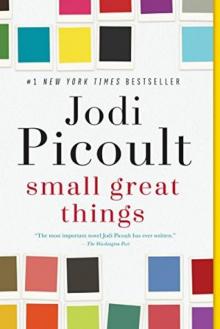 Small Great Things
Small Great Things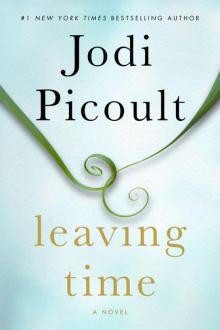 Leaving Time
Leaving Time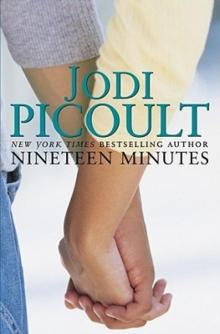 Nineteen Minutes
Nineteen Minutes Larger Than Life
Larger Than Life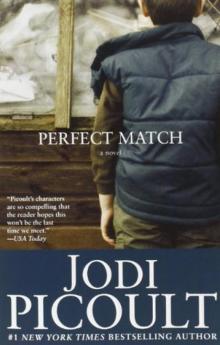 Perfect Match
Perfect Match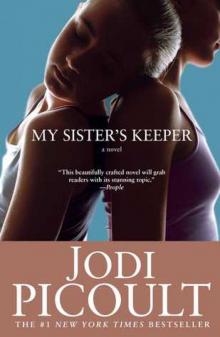 My Sister's Keeper
My Sister's Keeper The Pact
The Pact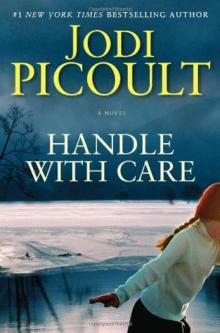 Handle With Care
Handle With Care Songs of the Humpback Whale
Songs of the Humpback Whale Mermaid
Mermaid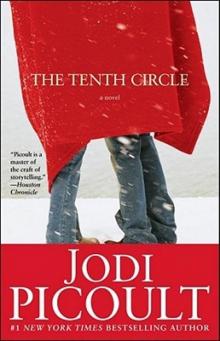 The Tenth Circle
The Tenth Circle The Color War
The Color War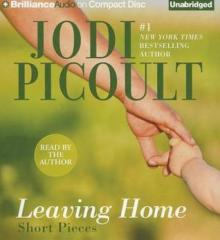 Leaving Home: Short Pieces
Leaving Home: Short Pieces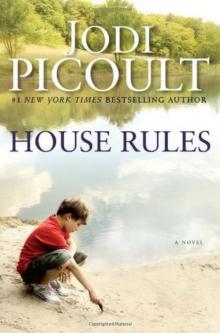 House Rules
House Rules Lone Wolf
Lone Wolf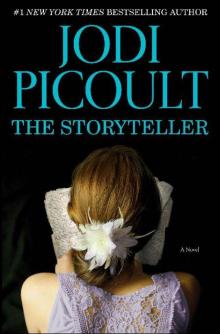 The Storyteller
The Storyteller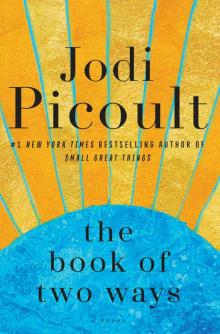 The Book of Two Ways
The Book of Two Ways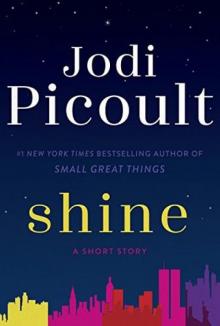 Shine
Shine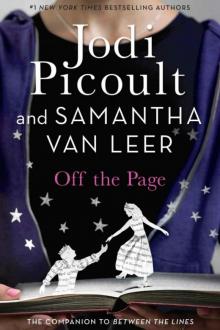 Off the Page
Off the Page Sing You Home
Sing You Home Second Glance: A Novel
Second Glance: A Novel Mercy
Mercy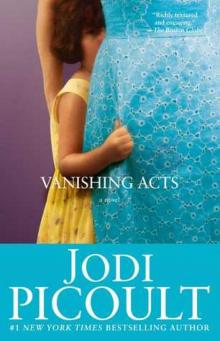 Vanishing Acts
Vanishing Acts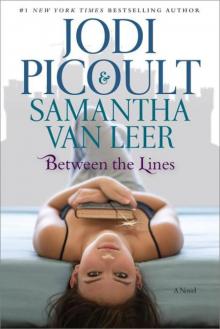 Between the Lines
Between the Lines Plain Truth
Plain Truth Salem Falls
Salem Falls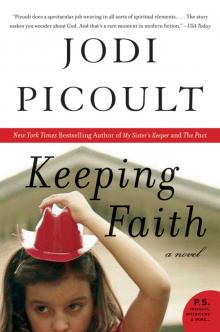 Keeping Faith
Keeping Faith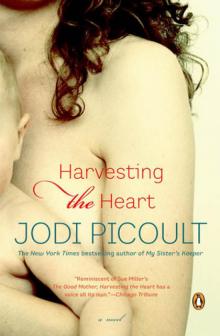 Harvesting the Heart
Harvesting the Heart Change of Heart
Change of Heart Where There's Smoke
Where There's Smoke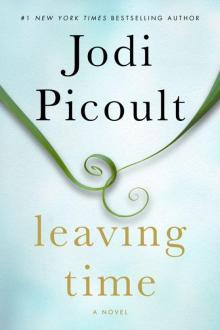 Leaving Time: A Novel
Leaving Time: A Novel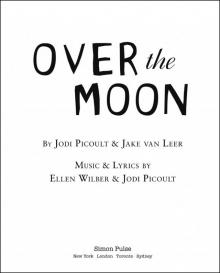 Over the Moon
Over the Moon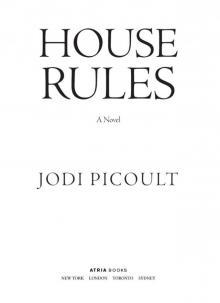 House Rules: A Novel
House Rules: A Novel The Jodi Picoult Collection #2
The Jodi Picoult Collection #2 Leaving Home: Short Pieces (Kindle Single)
Leaving Home: Short Pieces (Kindle Single)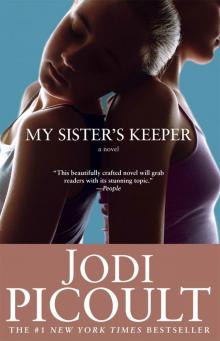 My Sister's Keeper: A Novel
My Sister's Keeper: A Novel![Mermaid [Kindle in Motion] (Kindle Single) Read online](http://i1.bookreadfree.com/i1/04/03/mermaid_kindle_in_motion_kindle_single_preview.jpg) Mermaid [Kindle in Motion] (Kindle Single)
Mermaid [Kindle in Motion] (Kindle Single) The Jodi Picoult Collection #4
The Jodi Picoult Collection #4 Sing You Home: A Novel
Sing You Home: A Novel The Jodi Picoult Collection
The Jodi Picoult Collection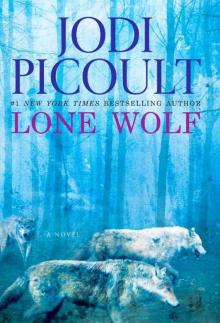 Lone Wolf A Novel
Lone Wolf A Novel Second Glance
Second Glance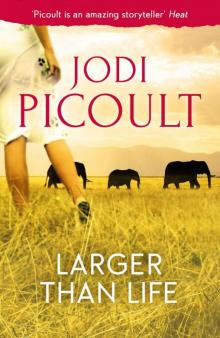 Larger Than Life (Novella)
Larger Than Life (Novella) The Jodi Picoult Collection #3
The Jodi Picoult Collection #3